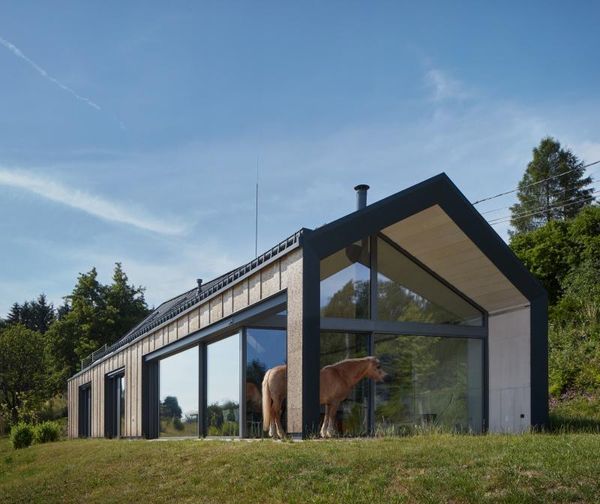These months are more influential than the last 15 years, said one investor, and he is right. The coming decade will transform the way we live and consume. But how to invest in these challenging times?
After three consecutive years of strong equity market returns, 2022 has brought losses and market instability not seen since the Great Depression. Unprecedented market events triggered by the Russo-Ukrainian war, supply chain disruptions, rising interest rates, the euro-dollar parity, and record-high energy prices make life even more stressful for asset managers. After more than a decade of low inflation, relative market stability, and record-high returns, how will asset managers adapt to the new unstable environment with high inflation? Will the coming years threaten the industry, or can portfolio managers gain a competitive advantage in this period? And more importantly, what should small private investors keep in mind when managing their savings? Conference coverage from the Mathias Corvinus Collegium’s „Investing in times of crisis” panel discussion.
2022 will definitely not be the year of economic prosperity. However, Péter Kadocsa, CEO of AEGON Asset Management, did not want to analyze the current situation without looking at the big picture. The 2010s and 2020s are, in many ways, very different. In the 2010s, central banks issued huge amounts of money, leading the markets in a certain direction. But society and societal trends have changed. The previous decade was the decade of the top 1 percent, with the wealthy benefiting the most, and this development had an impact on politics. But today, we can see that it is not enough for the political elite to focus only on the richest. Moreover, Europe has been at relative peace in the 2010s, while today, the war and sanctions are severely affecting the economy. Furthermore, the coronavirus pandemic has also triggered deglobalization, as we are becoming more conscious about our surroundings.

The discussion was especially interesting as we could hear viewpoints other than the Hungarian or European perspectives. One of the panelists was Derek Horstmeyer, a Professor of Finance at George Mason University. Regarding the current plight, Horstmeyer highlighted the potentially dramatic effects of the Fed’s and other central banks’ high interest rates. We should just think of the American and European tech companies; the US corporate giants are used to near-zero interest rates, deriving their value in many cases from their future potential. So, they may not be able to react adequately to the new environment with high interest rates, which may lead to severe consequences.
Márton Oláh, a Member of the Board of Directors of Diófa Asset Management, believes we will reassess and rethink our lives due to the current plight. The Russo-Ukrainian war has shown the general public how scarce our raw material resources are and how exposed we are to global supply chains. The last few years have also erased the illusion that disasters cannot happen because they have not happened in contemporary history. We have to pay more attention now to how many lights we leave on, how many times we eat out, and how fast we drive on the motorway. According to Oláh, the coming months will be more influential in our lives than the previous 10-15 years.
During crisis periods, share values often start to fall, and people want to save their money. Still, Kadocsa does not believe the whole market will homogenously underperform as relative differences exist. Markets are always priced in an extreme way, and this is particularly true for emerging markets, such as Eastern European emerging markets. Because gas costs six times as much in Europe as in the United States, the volatile European markets are significantly undervalued, and this might even out only later. Horstmeyer agreed that the undervaluation mainly concerns emerging markets. Americans are hoping that the worst days of inflation are behind them, as the US market is not very different from the historical average, unlike in developing countries.

Oláh reminded us again that we should be cautious. We can invest now in developing countries’ emerging markets. Inflation can rise further at any time; in San Francisco, we already have to pay $18 for one omelet, but the sky is the only limit for inflation.
In times of crisis, we easily forget about environmental awareness and sustainability, especially when it comes to investing. It is much harder now for a trustee to sell their service as it is harder to offer those numbers that we have been used to over the last 20 years. Diófa Asset Management handles a lot of real estate transactions, which are very exposed to energy prices. The question is how tenants can pay their rent, with potential cash-flow problems. In the coming times, investors will not focus on ESG (Environmental, Social and Governance), so green investments.

According to Horstmeyer, the situation is similar in the United States. People have gradually moved away from investing in oil, but in today’s environment, they are increasingly returning to it. What is perhaps a new trend in recent years is that people are increasingly buying stocks rather than investing in startups; they are buying shares rather than companies. Kadocsa added that the eclipse of ESGs will at least help reduce this buzzword’s overuse. In recent years everything has been labeled as green investing.
The panelists disagreed the most regarding active and passive investing. Kadocsa and Oláh represented the asset managements’ opinion, so it is no wonder they prefer an active investing strategy. On the other hand, Horstmeyer is firmly in favor of passive investing. He argued that if someone is not well informed and does not have the insight a professional has, they should almost certainly choose passive investing. There are increasing available options for passive investing with decreasing handling fees, so he wholeheartedly recommends passive solutions to 90 percent of society. But, Kadocsa argued that it is not that simple as the market cannot go up forever. Consulting with professional investors is not cheap, of course, but they have insight into the trends and experience, so we can often have much more profitable deals this way. Oláh believes that our investments also depend on our temperament. If someone worries about their money, they will not choose active investing, which is absolutely understandable, as we are not the same. The world of investments is very complex now, with a wide range of options. There are many new developments, like the crypto and NFT craze of the last few years. In the current plight, it is beneficial to consciously reach out and consult with experts who can assist us with investments, as in this oversaturated financial world, ordinary people understand less and less about everything.
Graphics: Roland Molnár | Hype&Hyper

World-class footballer promotes the LEGO foosball table designed by a Hungarian boy

NASA’s first asteroid redirect mission was a success










